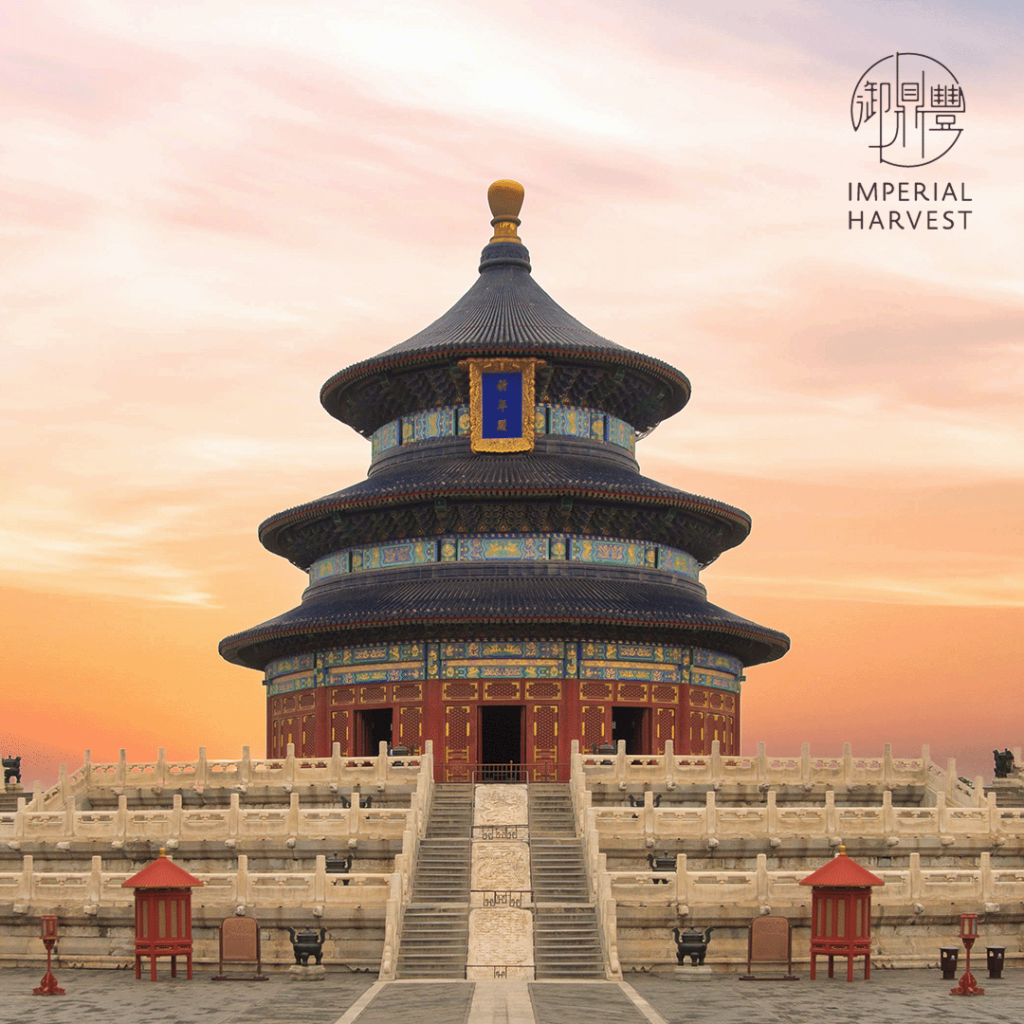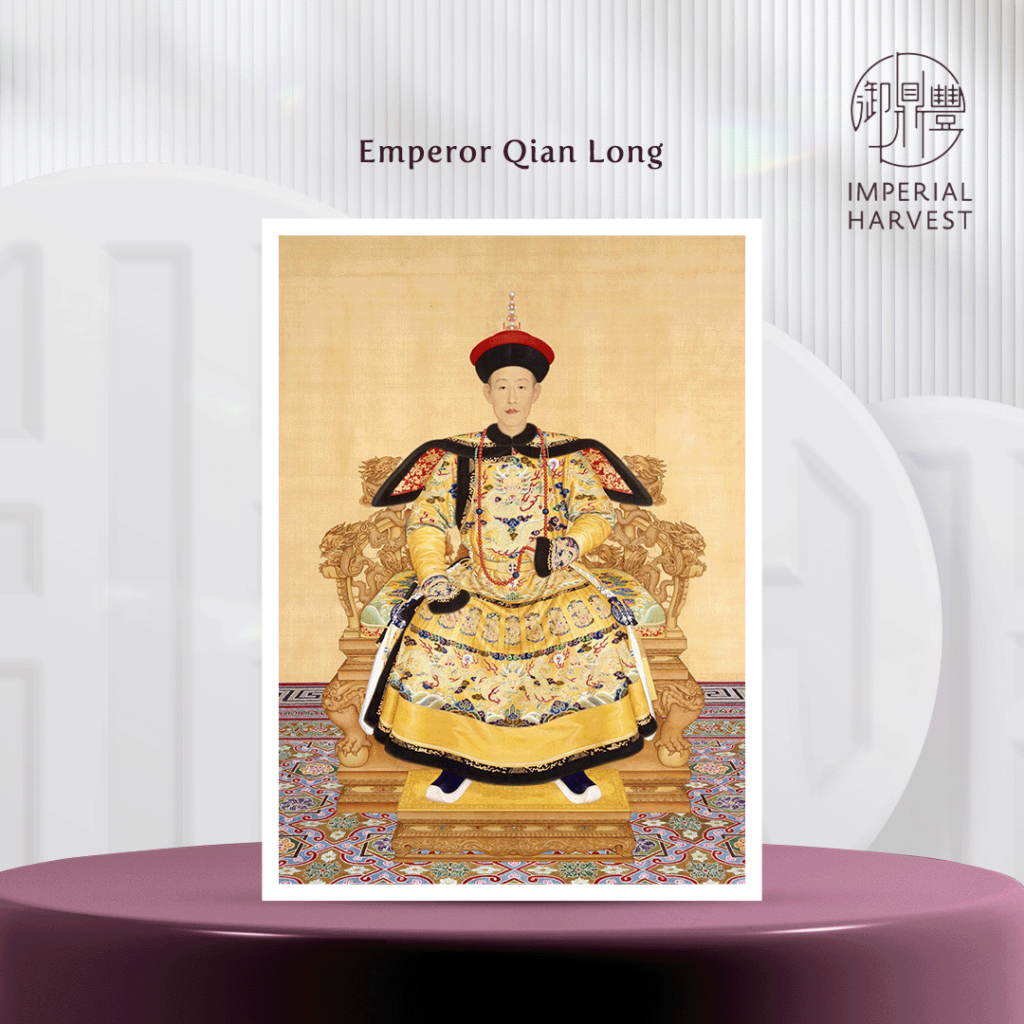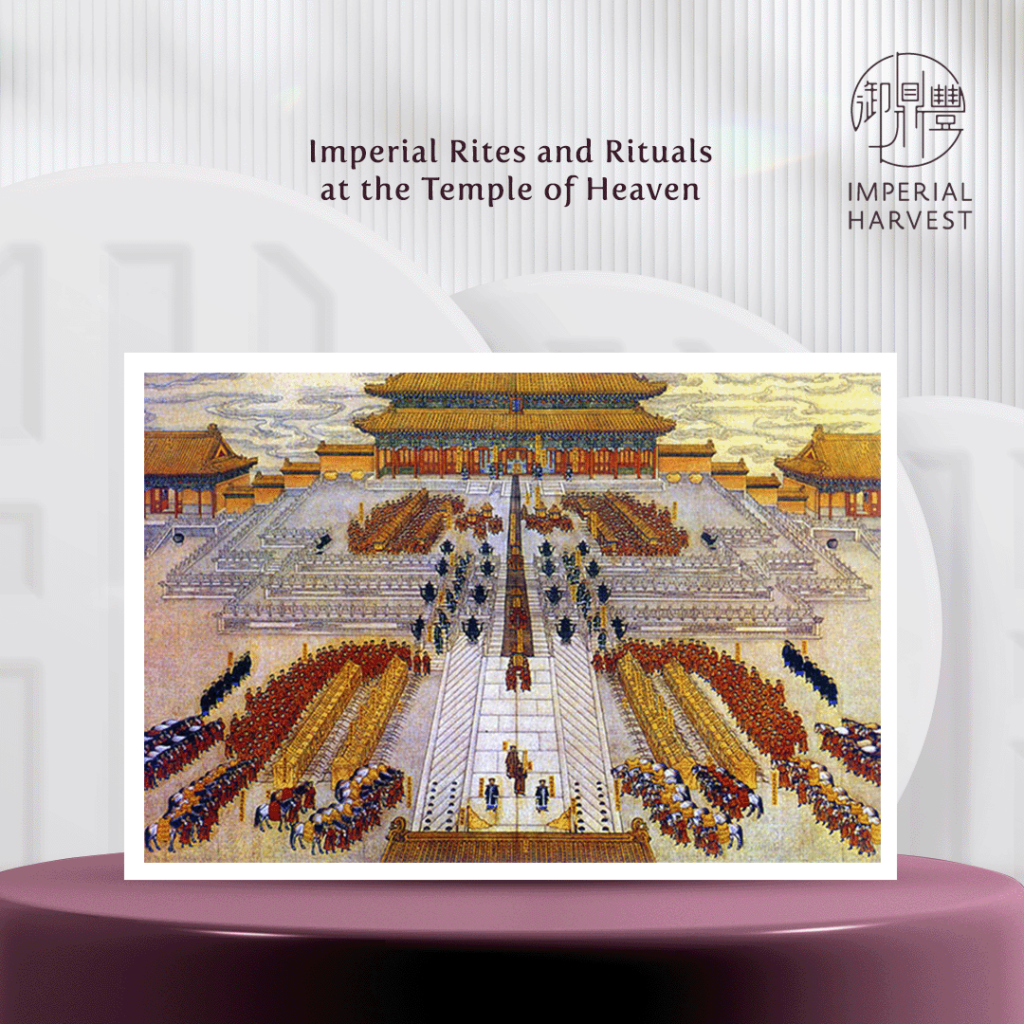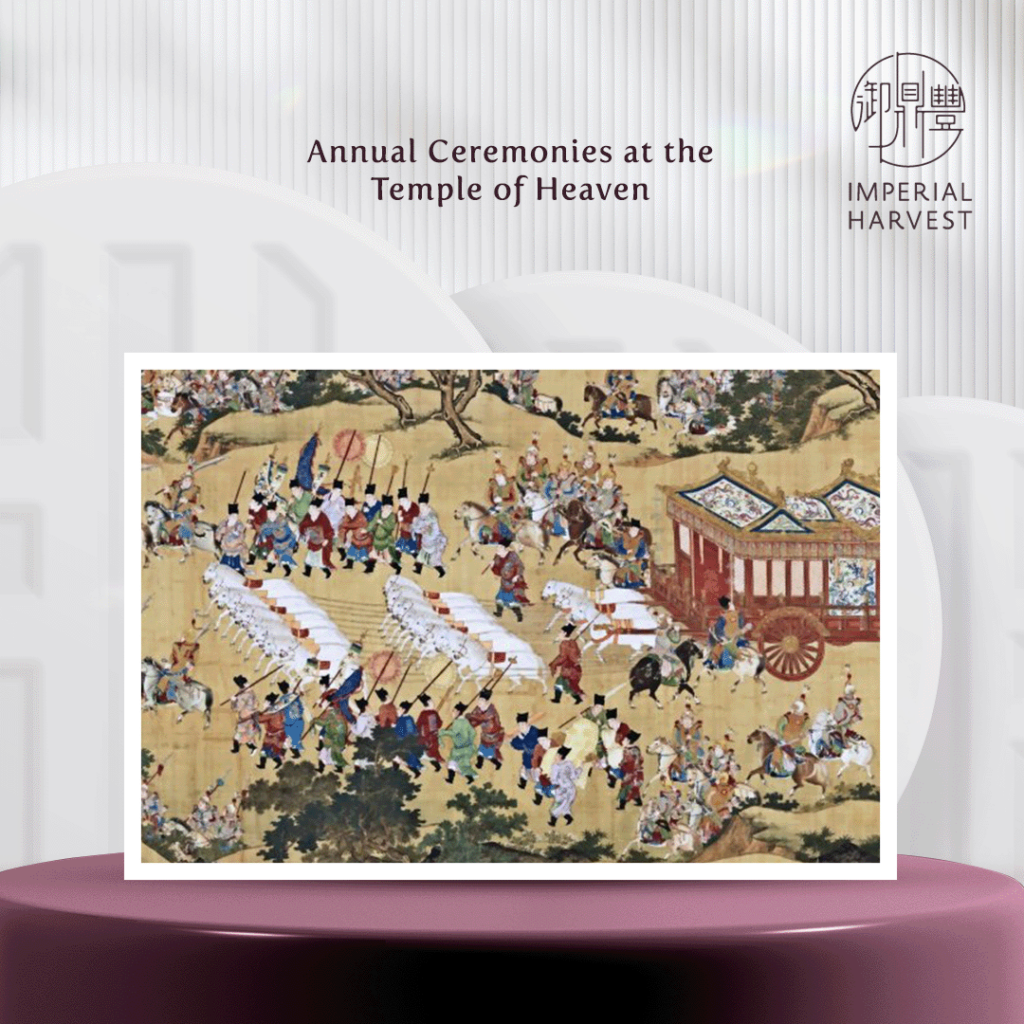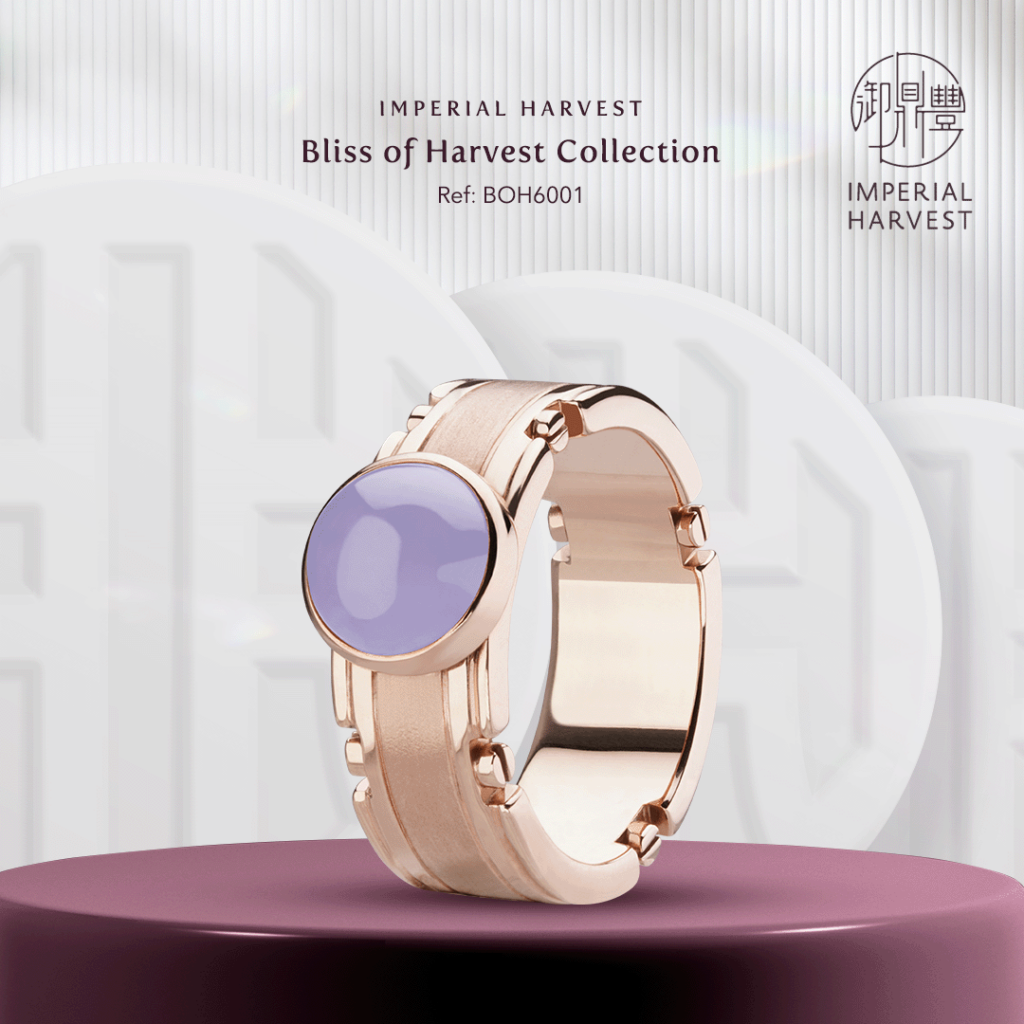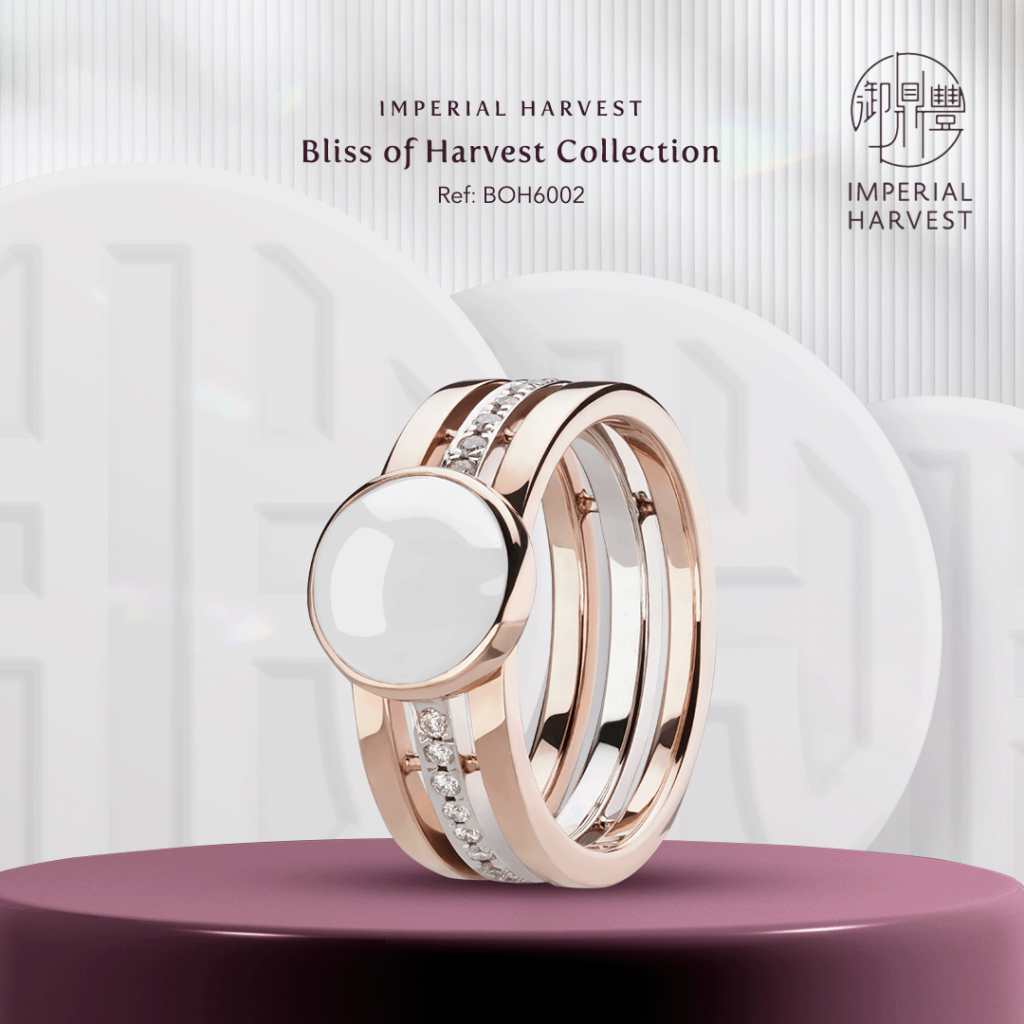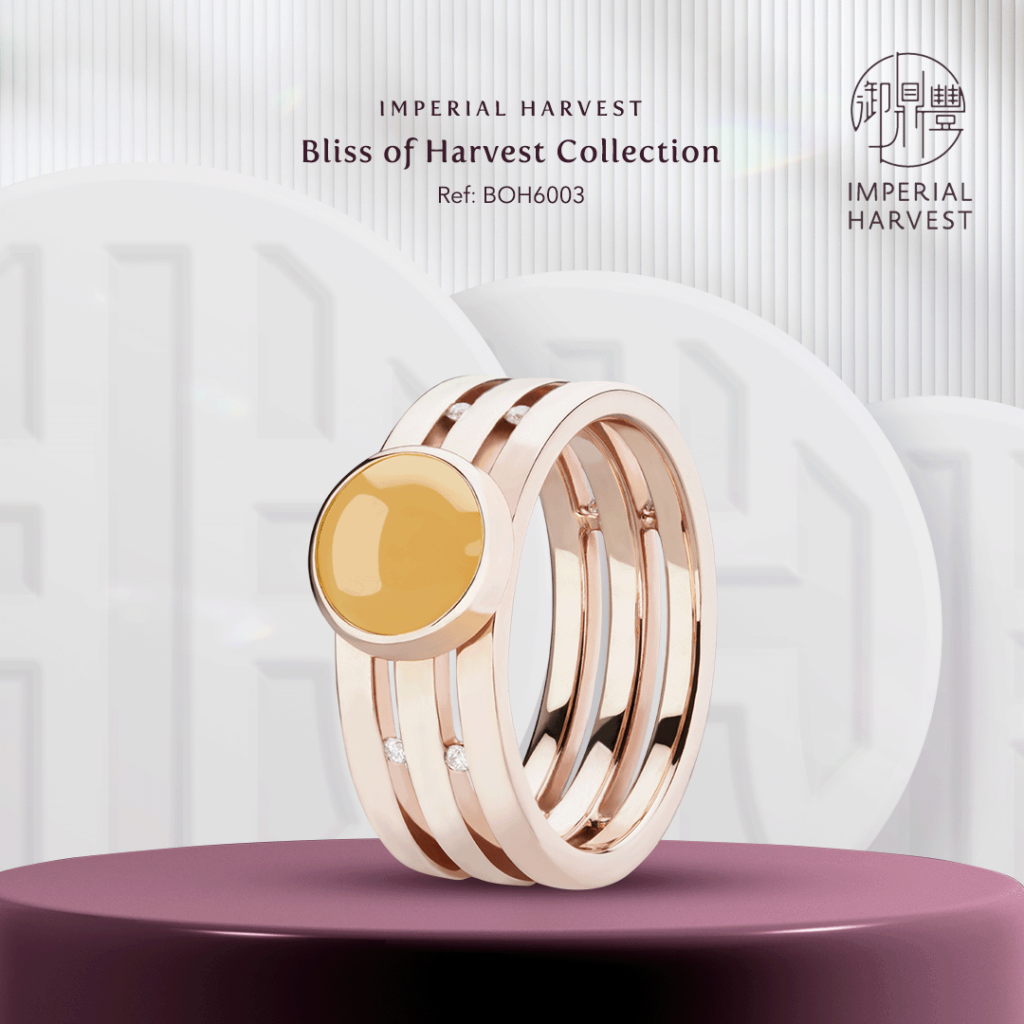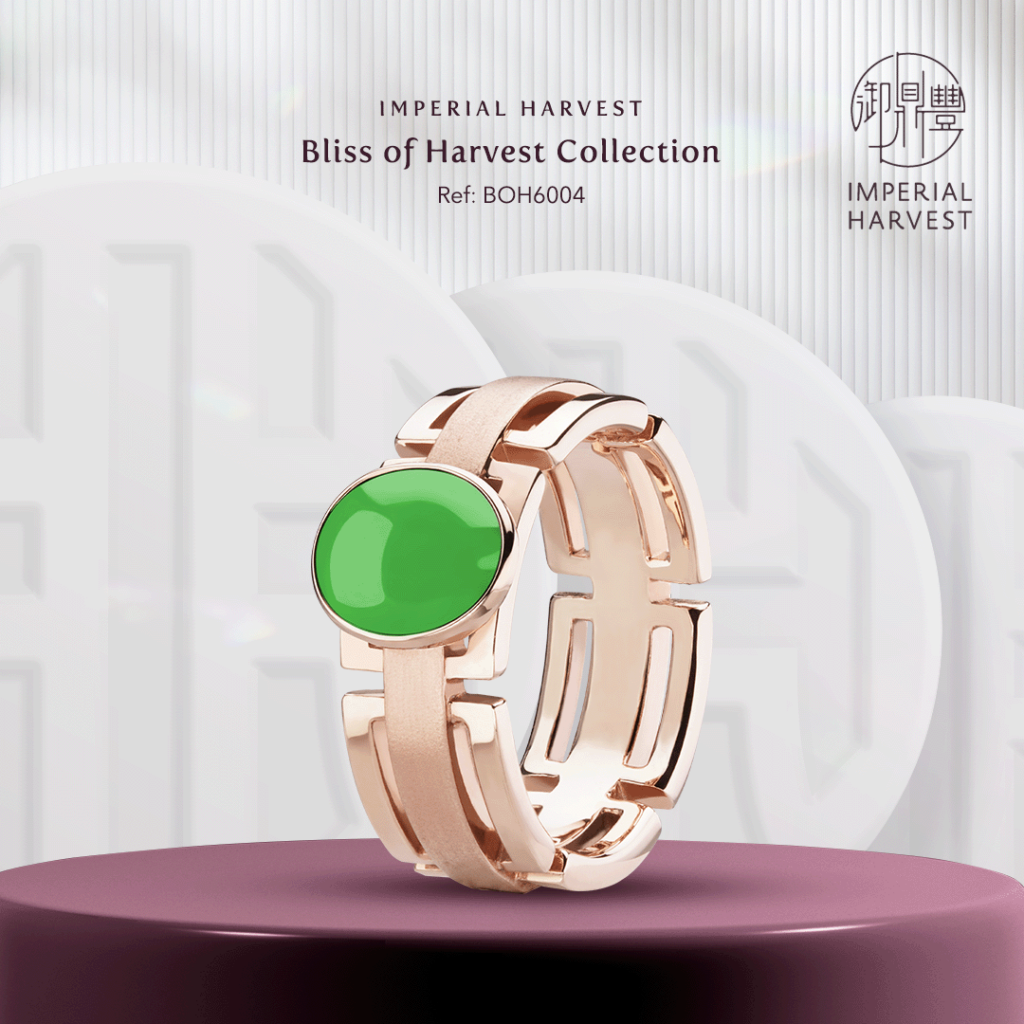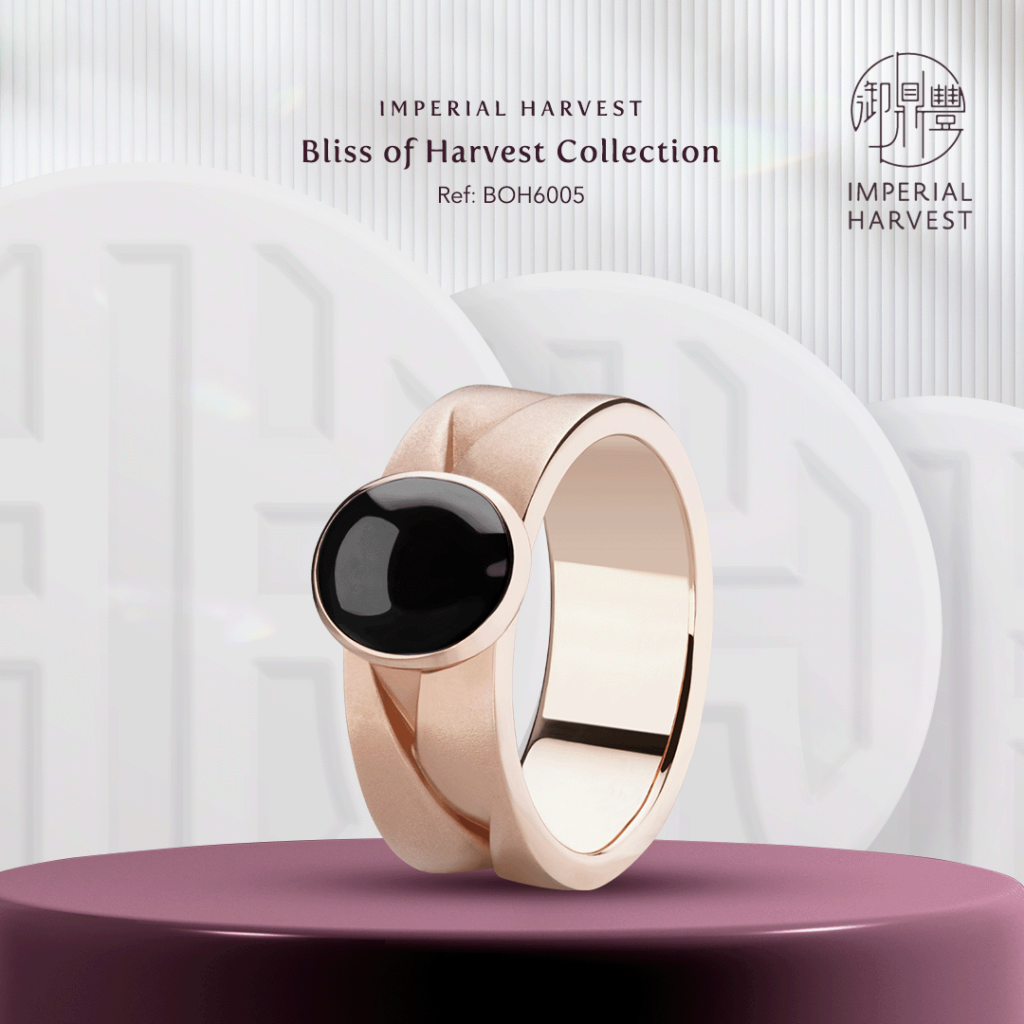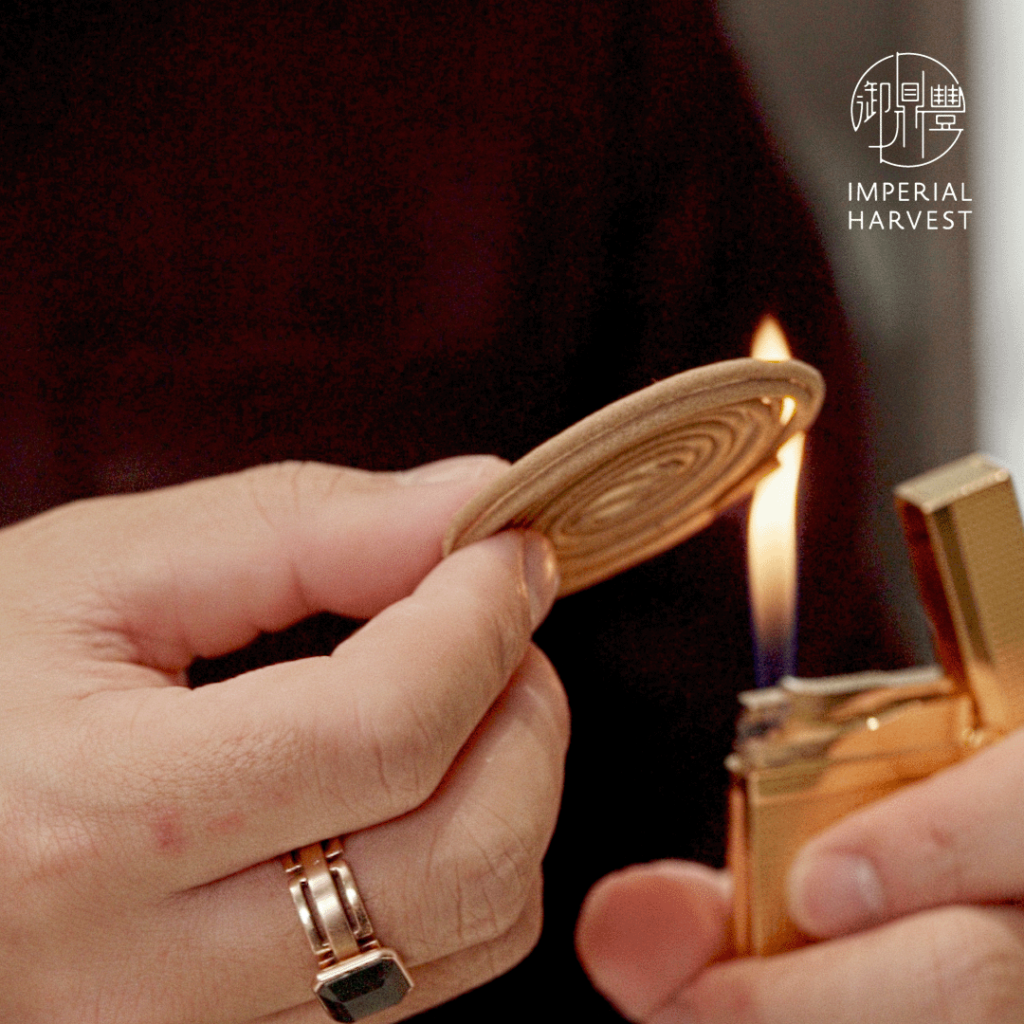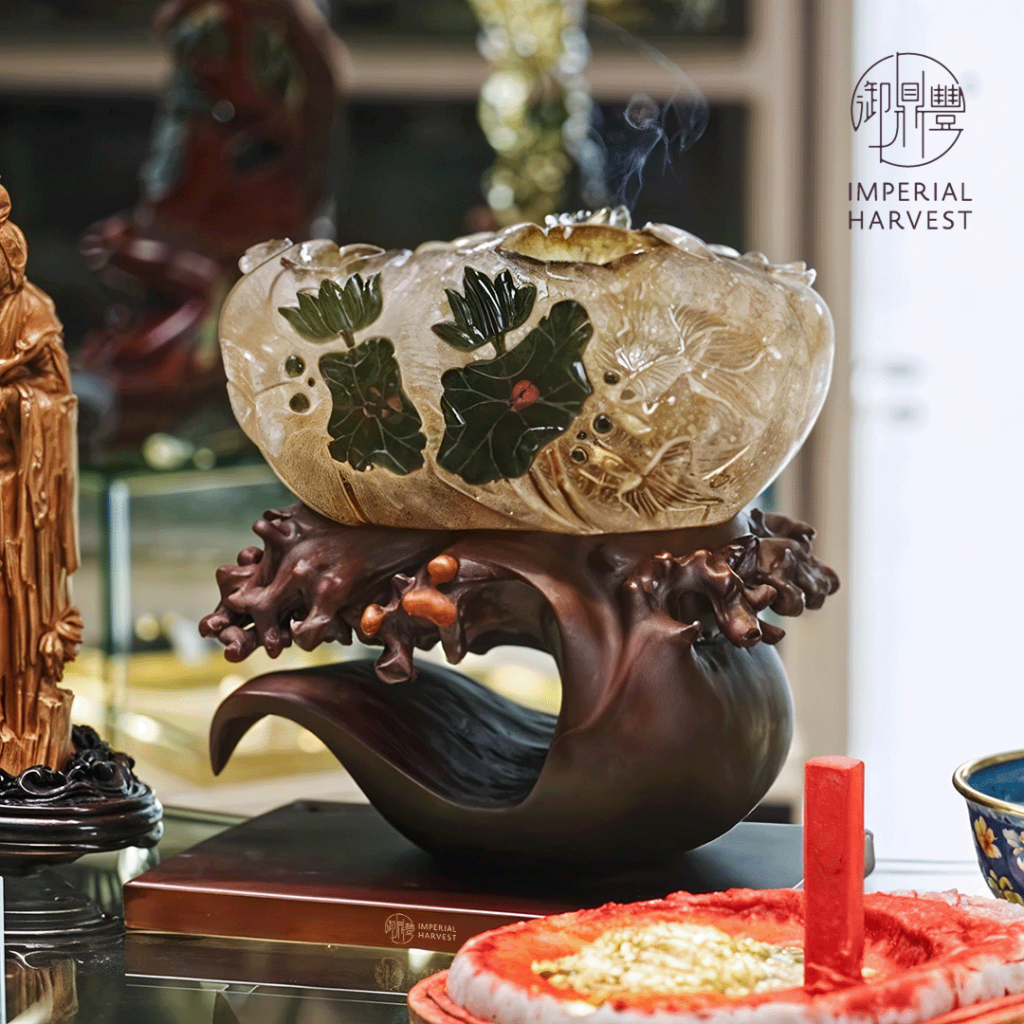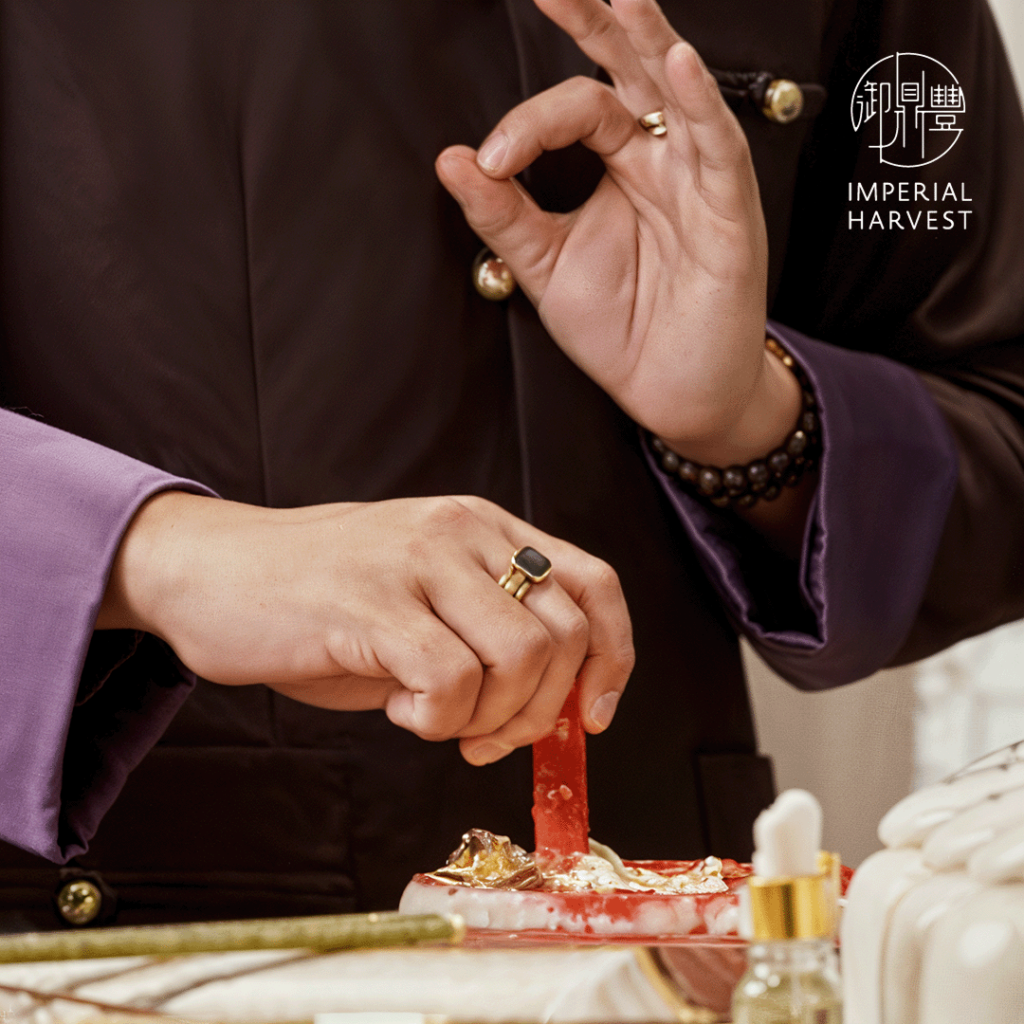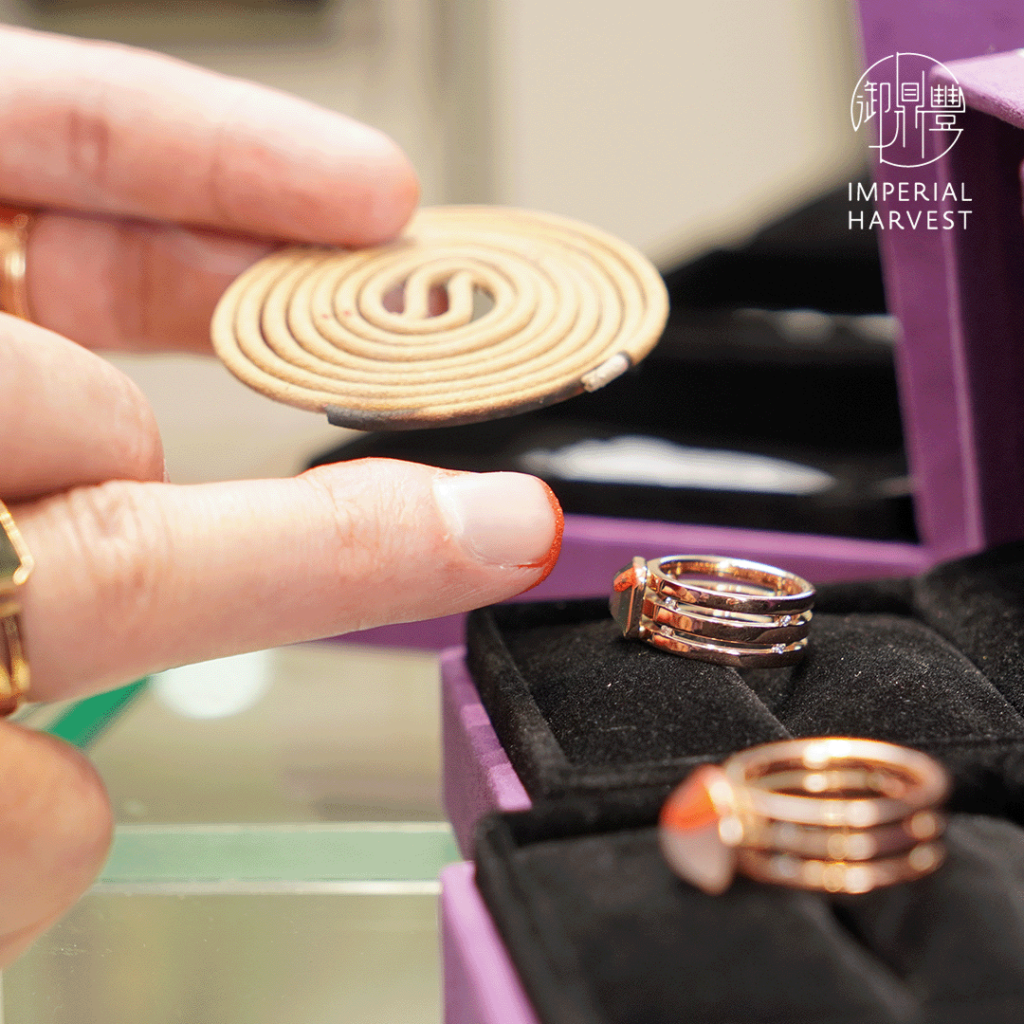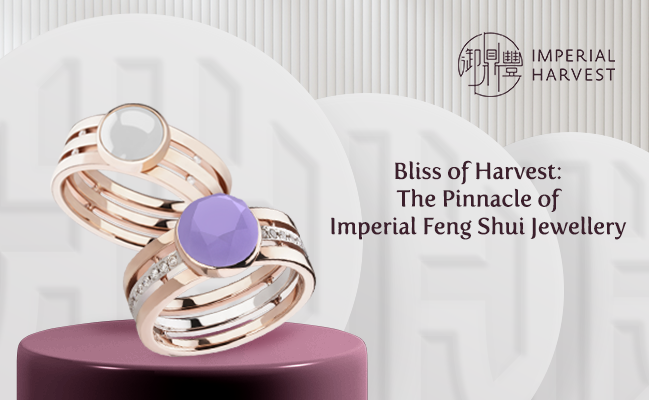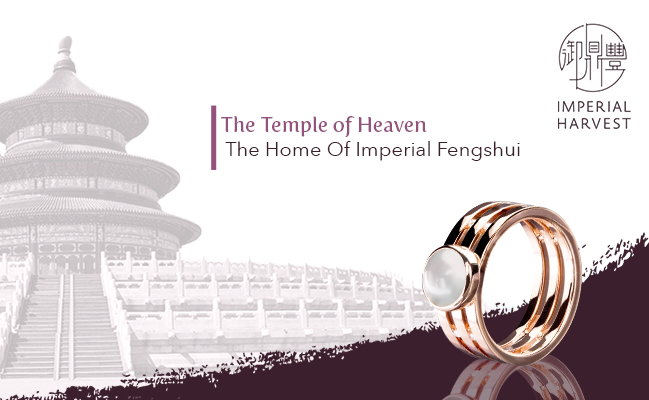Posted by Imperial Harvest on 06 December 2024
Estimated Reading Time: 5 mins
The Temple of Heaven, a UNESCO World Heritage site and one of China’s most significant landmarks, attracts millions of visitors each year for its architectural grandeur and deep historical resonance.
Legacy of the Temple of Heaven
Constructed during the Ming Dynasty, the Temple of Heaven was a ceremonial centre where emperors, regarded as the Sons of Heaven, performed sacred rites to ensure bountiful harvests and preserve cosmic harmony. Its design reflects profound philosophical and spiritual principles, symbolising the balance between Heaven and Earth — a concept central to Chinese cultural and metaphysical thought. This expansive complex is not only a prominent structure in Beijing but also holds a vital place in the traditions of Imperial Feng Shui.
The Foundations of Chinese Theology
The origins of Chinese civilisation are often traced back to the oracle bone inscriptions of the Shang Dynasty, which were used in divination and reflecting a sophisticated worldview. Central to this worldview was the concept of Heaven — an enduring force governing nature and society.
Chinese emperors, known as “Sons of Heaven,” were seen as intermediaries between Heaven and Earth, deriving their authority from the “Mandate of Heaven.” This belief established not only their legitimacy but also their duty to govern with integrity, maintain social harmony, and protect the welfare of their people.
Confucius encapsulated this ideal in his analogy: “To rule by virtue is like the North Star—it remains steadfast in its position while all other stars align around it.” This philosophy underscored the responsibilities of leadership and the importance of adhering to universal principles.
In Chinese tradition, ancestors were also seen as a bridge to the divine, their veneration serving as a way for the living to honour and connect with the forces shaping their world. The Temple of Heaven is a grand embodiment of these enduring cultural values, preserving a legacy of reverence, balance, and harmony.
Imperial Rites and Rituals at the Temple of Heaven
Rituals have long played a crucial role in maintaining social order and reinforcing the harmony between different realms of existence — Heaven, Earth, and Humanity. These ceremonies were seen as essential for ensuring the smooth functioning of society, fostering continuity between generations, and upholding cultural traditions. Rooted in Confucian values, precision and strict adherence to protocol were considered paramount in the conduct of these rites.
Five Categories of Rites
The ancient Rites of Zhou outlined five primary categories of rituals:
- Auspicious Rites: Ceremonies dedicated to offerings for Heaven, Earth, and spirits, seen as the most critical to state affairs.
- Inauspicious Rites: Observances addressing adverse events such as funerals or poor harvests.
- Celebratory Rites: Festivities like weddings and banquets marking joyous occasions.
- Hosting Rites: Protocols for receiving audiences, particularly in royal courts.
- Military Rites: Ceremonies linked to warfare, including declarations, deployments, and victory celebrations.
Auspicious rites were deemed the most significant of all, often described as the “great affairs of the state.” These rituals were performed exclusively by the emperor, who held the role of the Son of Heaven, symbolising his unique connection to divine authority.
Annual Ceremonies at the Temple of Heaven
The emperor was responsible for leading key rituals that aligned with the agricultural and cosmic calendar, underscoring his role in ensuring the empire’s prosperity. At the Temple of Heaven, three major ceremonies were conducted annually:
- Prayer for Abundant Harvest: Held on the first Xin day of the first lunar month in the Hall of Prayer, this ceremony sought blessings for a bountiful harvest.
- Prayer for Rain: Conducted at the Circular Mound Altar during the summer solstice, this rite aimed to secure timely rainfall.
- Worship of Heaven: The most critical ceremony, performed on the winter solstice, expressed gratitude for the year’s harvest and sought continued blessings for the empire’s well-being.
Seasonal ceremonies, such as Winter Solstice rites were particularly significant, reflecting the emperor’s responsibility to maintain cosmic balance and order. The proceedings required meticulous planning, as even minor errors were believed to invite misfortune upon the empire. Every detail — from the alignment of ritual objects to the precise timing of the rites — had to be executed flawlessly, showcasing the emperor’s dedication and the cultural emphasis on perfection. These rituals affirmed the emperor’s role and reinforced the cultural values of diligence, respect, and order that were central to Chinese society.
On the eve of the Winter Solstice, the emperor would leave the Forbidden City for the Temple of Heaven in a grand but solemn procession. Carried in a yellow imperial sedan chair, the emperor was escorted by a vast guard of honour. At its peak during Emperor Qianlong’s reign, this procession included 3,500 officials, stretching for miles, accompanied by elephants, horse-drawn chariots, and towering banners.
Despite its grandeur, the procession was conducted in near silence, reflecting its ceremonial significance rather than celebratory intent. Commoners were required to stay indoors with doors and windows closed, ensuring the ritual remained undisturbed.
At the Temple of Heaven, the emperor began preparations for the next day’s rites. After inspecting offerings and sacrifices at the Imperial Vault of Heaven and the Divine Kitchen, he retired to the Palace of Abstinence. There, he prayed, fasted, and meditated to prepare himself for the sacred ceremony.
Winter Solstice Ceremony at the Circular Mound Altar
The main ceremony began early in the morning at the Circular Mound Altar. The emperor, dressed in ceremonial attire, led a series of carefully choreographed rituals designed to align the empire with the natural order. Odd numbers, especially the number nine, were central to the ceremony, symbolising heaven and imperial authority.
- Welcoming the Emperor God: Pine boughs were burned in twelve iron stoves around the altar, filling the air with fragrant smoke. The ritual officer led chants and music to welcome the “Emperor God.” The emperor ascended the first nine steps of the altar and offered incense.
- Presenting Jade and Silk: On the second tier of the altar, the emperor offered jade and silk while the Jingping chapter of the ceremonial music played.
- Sacrificial Offering: Ascending the final tier, the emperor presented a cattle sacrifice to the sound of the Xianping music.
- First Prayer: The emperor knelt at the altar and offered wine before returning to his prayer position. This segment was accompanied by martial music and a ceremonial dance with shields and axes, symbolising temperance and strength. A ritual officer then recited prayers while standing on the Heart of Heaven stone.
- Second Prayer: The emperor repeated the offering of wine, this time accompanied by a civil dance using long pheasant feathers. Unlike the first prayer, this segment did not include a recital.
- Third Prayer: In the final prayer, the emperor offered wine again. The Yongping music, symbolising eternal peace, played as the dancers performed.
- Withdrawal: The sacrifices were withdrawn from the altar while the Xiping chapter of music played.
- Send-off for the Emperor: The emperor led the congregation in three kneels and nine bows. Sacrifices were burned as the Taiping music played.
- Inspection of Offerings: The emperor concluded the ceremony by inspecting the burning sacrifices. The Youping music played as he began his return journey to the Forbidden City, marking the end of the ceremony.
This meticulously planned ritual underscored the emperor’s role in maintaining the empire’s stability and prosperity. Every detail reflected the precision and order essential to Chinese ceremonial tradition, reinforcing the connection between leadership, culture, and the natural order.
Imperial Harvest Exclusive Collection: Bliss of Harvest
Inspired by the architectural brilliance and cultural symbolism of the Temple of Heaven, the Bliss of Harvest rings reflect a timeless connection to imperial heritage. These meticulously crafted pieces embody the balance and abundance symbolised by heaven and earth, offering more than just elegant jewellery—they serve as meaningful conduits to channel positive energy and enhance prosperity in your life.
Commemorating 600 years of the Temple of Heaven’s legacy, the Bliss of Harvest collection showcases Imperial Harvest’s dedication to masterful craftsmanship and the rich traditions of Imperial Feng Shui. As one of our most iconic collections, it pays tribute to the Hall of Prayer for Good Harvests, seamlessly blending historical significance with contemporary elegance, making it a cornerstone of Imperial Harvest’s legacy.
BOH6001
The first ring in the Imperial Harvest Bliss of Harvest collection showcases a refined interplay between matte and polished finishes, representing the balanced duality of yin and yang—the essence of heaven and earth. Four equidistantly placed screws pay homage to the four inner pillars of the Hall of Prayer for Good Harvests, symbolising balance and stability. This thoughtful design element serves as a reminder of the foundational support necessary for achieving success and prosperity.
BOH6002
This ring from the Bliss of Harvest collection features an elegant diamond-studded inner band, representing a future filled with hope and brilliance. Its radiant design captures the promise of imminent success awaiting its owner. Four pillars placed around the ring’s band reflect the layout of the inner pillars of the Hall of Prayer for Good Harvests, symbolising stability and steadfast support. This piece embodies prosperity and acts as a guiding emblem for a bright and successful future.
BOH6003
With its luminous hand-polished mirror finish, this Bliss of Harvest ring highlights three distinct bands accented by eight brilliant-cut diamonds arranged in four pillar-like formations. These pillars draw inspiration from the Hall of Prayer for Good Harvests’ structural supports, symbolising balance and reliability. This exquisite design honours the revered Hall and serves as a timeless symbol of prosperity and success, encouraging its wearer toward lasting achievement.
BOH6004
This Bliss of Harvest ring features a bold geometric design inspired by the square yard of the Hall of Prayer for Good Harvests. Drawing from the proverb “Round Heaven and Square Earth” (天圆地方), the ring represents the unity and balance of cosmic forces. The combination of matte and polished finishes adds a contemporary touch while symbolising the harmony of yin and yang. This design captures the essence of balance and prosperity, empowering its wearer with the interconnected forces of Heaven and Earth.
BOH6005
The final piece in the Bliss of Harvest collection presents a minimalist tri-band design that seamlessly blends artistic abstraction with structural strength. The tri-band motif symbolises unity and resilience, creating a visually striking piece that exudes quiet power. Designed to inspire confidence, this ring stands as a symbol of strength and stability, guiding its owner toward enduring prosperity and success.
Bespoke Blessing by Master David Goh
Imperial Harvest proudly upholds the enduring legacy of ancient Chinese rites and rituals, preserving these sacred practices as they have been observed for millennia. Master David, deeply versed in the historical traditions of Chinese ceremonies, is committed to safeguarding and revitalising these customs for contemporary times. His dedication ensures that the profound meanings of prosperity, balance, and harmony—central to these rituals—continue to inspire and resonate across generations.
These cherished practices, historically conducted during key seasonal transitions and auspicious dates, are seamlessly woven into Imperial Harvest’s brand narrative. By integrating these timeless rituals into our collections and experiences, we pay homage to their cultural significance while making them accessible in the modern world.
Every treasure offered by Imperial Harvest is more than a piece of craftsmanship—it is a thoughtfully designed vessel of blessings. Master David personally consecrates each item through bespoke rituals, meticulously tailored to the client’s Bazi chart and conducted on auspicious dates. These ceremonies include the hand-drawing of unique talismans, the recitation of auspicious prayers, and the anointing of each piece with specially prepared red vermilion.
Rooted in the wisdom of the Temple of Heaven’s legacy, these practices connect our clients to the auspicious energy and enduring harmony of Chinese traditions. Through these sacred rituals, Imperial Harvest empowers individuals with prosperity and balance, ensuring that the timeless blessings of these revered customs continue to enrich lives in meaningful and transformative ways.
Learn about the Imperial Harvest Consecration Ceremony here [https://imperialharvest.com/blog/imperial-harvest-consecration-ceremony/]
A Lifelong Journey with Imperial Harvest
The Imperial Harvest Journey signifies a lasting partnership with Master David Goh and his dedicated team of experts. With a suite of complimentary services designed exclusively for Imperial Harvest clients—including annual Bazi analyses, home Feng Shui assessments, Qi Men Dun Jia consultations, and Yi Jing divination—Imperial Harvest is committed to supporting clients in achieving lifelong success and prosperity.
Discover the unparalleled fusion of luxury, tradition, and personal empowerment with the Imperial Harvest Bliss of Harvest collection. Schedule your complimentary Bazi consultation today and uncover how this extraordinary treasure can elevate your financial opportunities, business achievements, and personal relationships.
Imperial Harvest’s expert consultants are always on hand to guide you on your journey and provide you with insights to help you realise your fullest potential. Book a complimentary consultation today or contact us at +65 92301640.
We are located at
For prospective clients: Imperial Harvest402 Orchard Road
Delfi Orchard #02-07/08
Singapore 238876 For existing clients: Imperial Harvest Prestige
402 Orchard Road
Delfi Orchard #03-24/25
Singapore 238876
Most Read Articles
Get to read our life changing articles and get inspired.
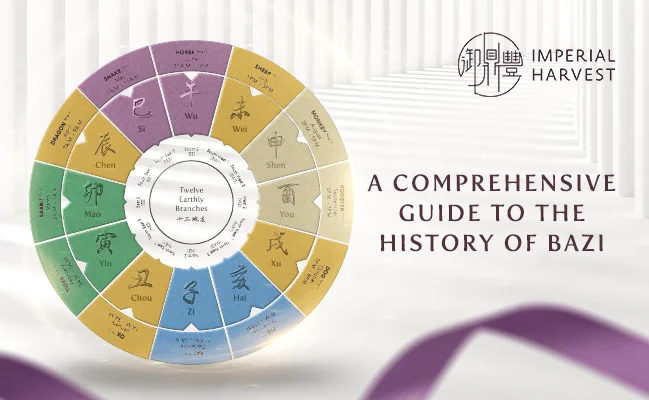
A Comprehensive Guide to the History of Bazi (八字)
Estimated Reading Time: 5 mins Bazi (八字) is often mistakenly assumed as the Chinese counterpart of western Astrology. The similarities between both systems lie in their utilisation of birth dates and time in their calculations, and the ability to be read from a tabulated chart. Where Astrology may take into account the positions of different […]
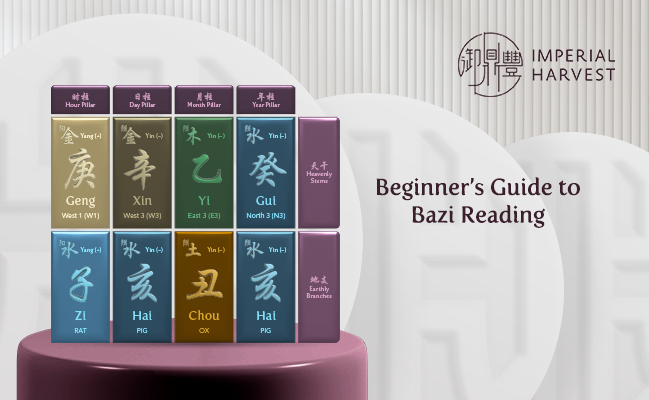
Beginner’s Guide to Bazi Reading
Estimated Reading Time: 5 mins Bazi (八字), or the Four Pillars of Destiny, is a multidisciplinary study in Imperial Feng Shui. It encompasses a well-developed set of metaphysical principles based on planetary influences, the duality of Yin and Yang, and the Five Elements. What is a Bazi Reading? Bazi is an intricate discipline within Imperial […]
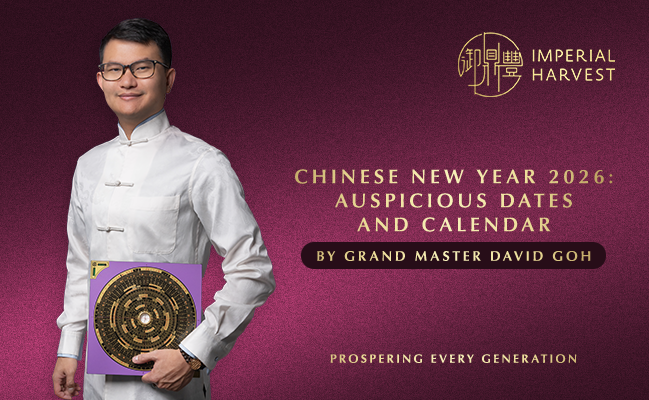
Chinese New Year 2026: Auspicious Dates and Calendar
Imperial Feng Shui Date Selection by Grand Master David Goh In Chinese metaphysics, success is not determined by effort alone — timing is equally decisive. 2026 marks the Year of the Crimson Horse, a year characterised by strong Fire energy, speed, visibility, and decisive movement. It is a year that rewards bold action and leadership, […]
